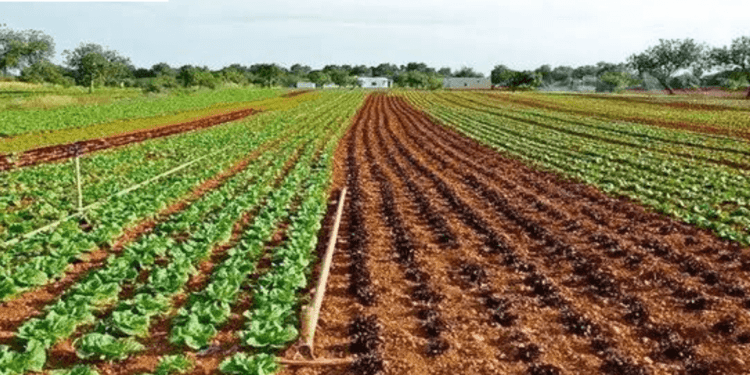The federal government’s ambitious plan to combat inflation and achieve food security through a N636bn agricultural budget is facing severe challenges as insecurity continues to ravage Nigeria’s farming communities. Banditry, terrorism, and herdsmen-farmer clashes have forced thousands of farmers to abandon their fields, further exacerbating food shortages and inflation across the country. Despite President Bola Tinubu’s renewed commitment to boosting local food production, stakeholders fear the persistent insecurity may render these efforts futile.
Zamfara State, one of Nigeria’s agricultural hubs, highlights the gravity of the crisis. Over 80% of farmlands remain uncultivated due to the activities of bandits who impose extortion levies on farmers and terrorize communities. Recent reports from the Tsafe Local Government Area revealed a notorious bandit leader demanding N172m in levies, prompting mass evacuations of residents. Similar stories of displacement are echoed in other states, including Niger, Plateau, and Borno, where farmers fear for their lives due to escalating violence.
In the northern region, bandit-planted landmines and repeated kidnappings have severely restricted agricultural activities. For example, in Niger State, farmers have been advised to avoid farmlands until the military clears suspected explosive devices. In Plateau, criminal groups have destroyed vast farmlands, devastating staple crops such as Irish potatoes and wheat.
Herders-farmer clashes further complicate the situation in states like Kwara and Benue. Farmers in these regions lament losing millions of naira worth of crops to marauding herdsmen. In Sankera, Benue State, a once-thriving yam-producing community, production has drastically reduced due to persistent attacks. Many rice farmers have also refrained from planting, fearing renewed violence. While state governments have initiated conflict resolution committees, their impact remains limited against the backdrop of deep-seated insecurity.
Nationally, farmers and agricultural associations have called on President Tinubu to prioritise security interventions as a prerequisite for agricultural reforms. The All Farmers Association of Nigeria (AFAN) emphasized that smallholder farmers, who form the backbone of Nigeria’s agricultural output, require not just financial incentives but also adequate protection to return to their fields. Without resolving insecurity, the association warned, food security will remain an unattainable goal.



































